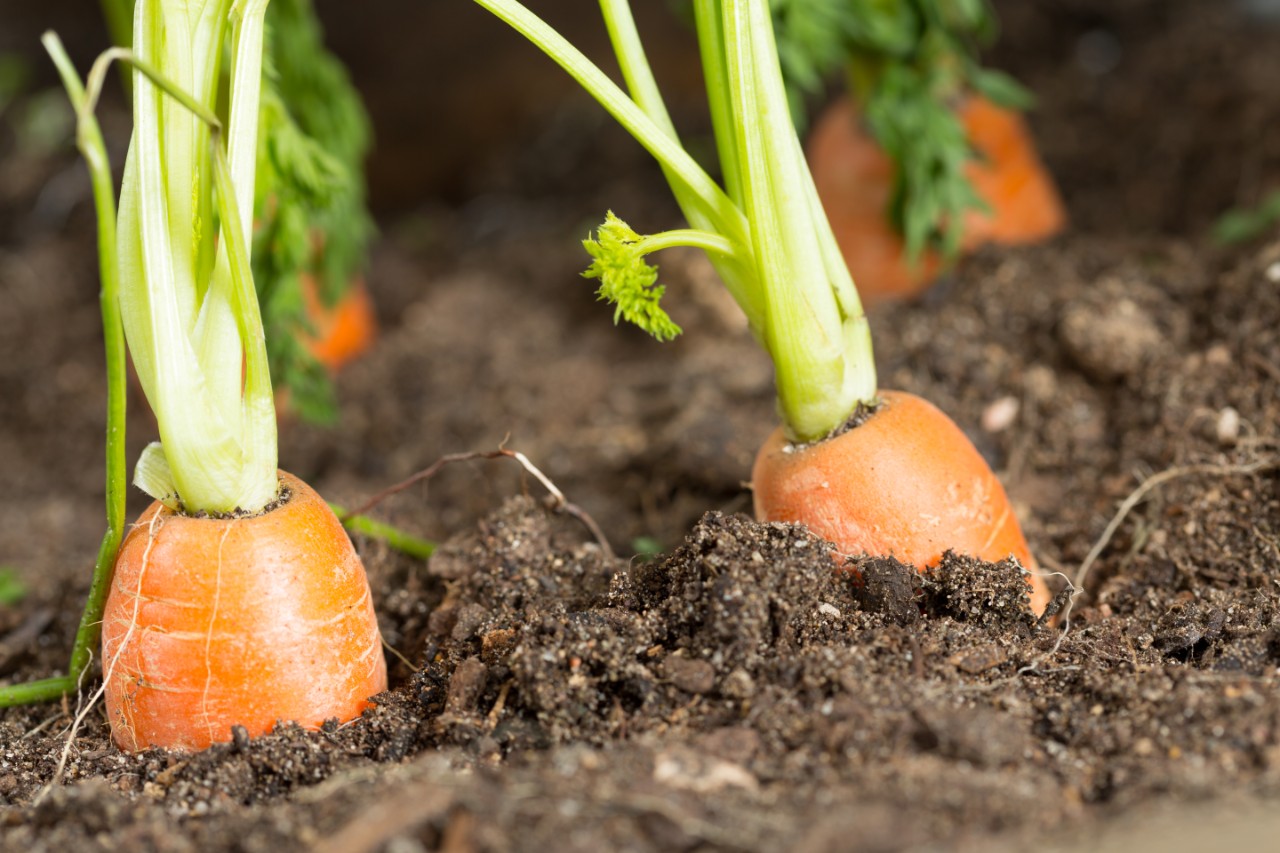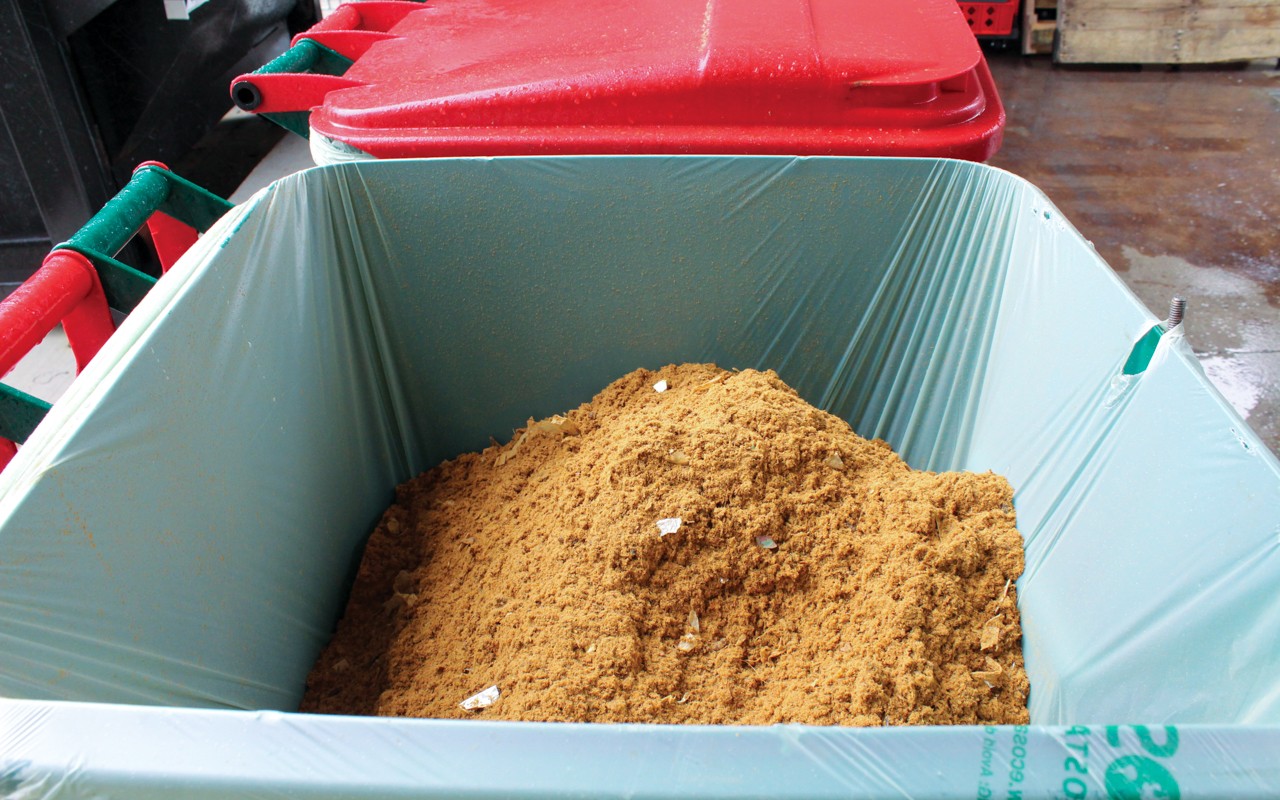Sustainability

Our Commitment to Sustainability
Last Mile Partnership
University of Cincinnati Dining partners with Last Mile, a Greater Cincinnati food rescue organization on a mission to save good food and get it to those who need it most. We look forward to continuing this partnership and working towards minimizing food waste, while feeding our community in need.
Ozzi Reusable To-go Containers
One of the ways UC is working towards a sustainable dining program is through the initiation of a reusable to go box program. OZZI reduces waste through eliminating disposable products and replacing them with 100% reusable ones. The OZZI reusable containers eliminate the volume of paper products on campus. In 2024, UC Collected an outstanding 165,000 OZZI containers to reduce the use of paper products on campus.
Where Can I find OZZI?
- CenterCourt, OTG, Stadium View Cafe and MarketPointe will offer carry-out meals with the use of an OZZI reusable box.
- All meal plan students are enrolled in the OZZI carry-out program, with the first box included in their meal plan. If a reusable box is lost or not exchanged for a token, it is $5 to purchase an additional container.
Ways You Can Decrease Food Waste

Tips for reducing wasted food
- In the dining center, take only what you can eat. Come back for seconds if you are still hungry after finishing your first plate.
- Make sure you plan ahead and buy the right amount of food so you don't waste it.
- Keep your refrigerator at home organized so you can see and use what you have.
- Blend it up. When produce gets over-ripe, use it in a smoothie.
- Spice up your water. Use peels of citrus fruits, apples, or cucumber to flavor your water.
- Add wilting veggies to soups or stews.
America is losing 40% of our food supply to the landfill; that's 1,250 calories per person per day.
Cage-Free Eggs and Humane Practices
Sodexo currently sources shelled or liquid eggs from cage-free operations and its pork from producers who do not use gestation crates. In 2017, Sodexo eliminated the use of veal crates from its supply chain. The company has outlined a phased approach to sourcing poultry, beef, and veal from suppliers who foster improved animal well-being.
Sustainable and Plant-Forward Options
There are several vegetarian, plant-based, and vegan options available at each dining center. Items that are vegetarian, plant-based or vegan will be indicated via icons on the menu boards at each station, on the SodexoMyWay website, and on the Everyday app.
There is a plant-based station at MarketPointe called Good Vibes that offers all plant-based food items. There is also a baked potato bar at Center Court that offers several plant-based proteins as well. In addition, at each dining center, there is always a plant-based burger option at the grill, a plant-based protein soup, plant-based or vegan side dishes available at the Simple Servings stations, and several other entrees and side dishes available at other stations.
513 Culinary Group’s goal is to have 50% plant-based entrees on menus by 2025.
Responsible Purchasing
513 Culinary Group purchases local, seasonal, responsibly raised, grown and sourced products whenever possible.
We work with our suppliers to source sustainable palm oil in the products that we buy from them whenever possible, and where Sodexo is not able to source sustainable palm oil, we will purchase GreenPalm certificates to reward palm producers for working in a sustainable and responsible way.
Food Sourced Locally
513 Culinary Group uses all leafy greens from a local farm in Cincinnati called 80 Acres. Our coffee that is used in the dining centers is called Rooted Grounds and is grown locally. We receive most of the accessible produce from local farms, from our local produce vendor, Piazza.
We aim to purchase locally sourced products whenever possible to reduce food miles traveled and reduce carbon emissions.
Sustainable Seafood
513 Culinary Group is committed to advancing sustainable seafood by sourcing only seafood from responsibly managed fisheries and seafood farms. We are committed to sourcing responsibly and providing energy management services that reduce carbon emissions.
Trayless Dining
UC practices trayless dining service to reduce food and water waste. This practice has been in place since 2008.
Fryer Oil Reclamation
Food Services works with a company to manage all fryer oil in a closed system. This system has many benefits including employee safety and increased efficiencies. It’s also sustainable because the used oil is picked up and sent to a facility to be recycled into biodiesel.
Leanpath and Weigh the Waste
On the Green, CenterCourt, and MarketPointe have a waste tracking device called Leanpath. Our kitchen team members use the device to track, manage, and work to prevent pre-consumer food waste in the kitchen. Our goal is to reduce food waste by 50% by the end of 2025.
In addition to tracking pre-consumer food waste in the kitchen, 513 Culinary Group also host Weigh the Waste events at the dining centers throughout the semester. These events are meant to bring awareness of the prevalence of food waste to our guests and educate on how we can prevent food waste for the better of our planet.
During Weigh the Waste events last fall, at the beginning of the semester, 281 lbs. of food waste was collected. At the end of the semester, 138 lbs. of food waste was collected. The amount of food waste we collected decreased by the end of the semester, but we plan to continue conducting these events to raise awareness around food waste and prevention.
Composting
On the Green, has a state of the art, self-operating composting system that takes food scraps directly from the dish return, sends it through a pulper and dehydrator, then turns the scraps into dry, usable soil, that our partner Go Zero picks up to use at parks in the Cincinnati area.



